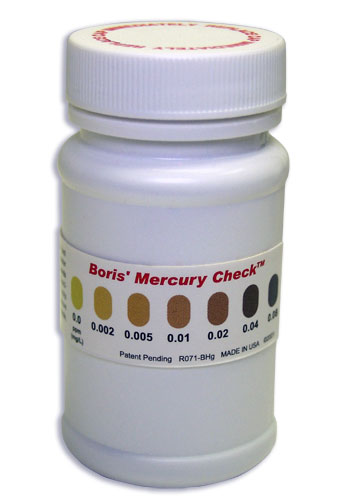Several of our Water Testing Blog readers have asked us to provide some basic information about mercury, its history, and how to test for it if they wanted to know if it had somehow gotten into their water supply. Below please find some very basic facts about mercury:
- Mercury exists in several forms: Elemental/Metallic Mercury, Inorganic Mercury Compounds, Organic Mercury Compounds.
- Mankind can neither create nor destroy mercury.
- Pure Mercury is a liquid metal at room temperature and standard environmental conditions. It is sometimes referred to as ‘quicksilver’ and volatizes readily.
- Industry has used Mercury in the manufacturing process of thermometers, switches and lightbulbs.
- The burning of coal releases mercury into the environment.
- Production of chlorine, burning of certain hazardous waste products, improper storage/disposal of mercury products, and the accidental spilling of mercury products releases mercury into the environment.
- Mercury released into the environment typically winds up in soil and in bodies of water where certain microorganisms can convert into a highly toxic compound known as methylmercury.
- The compound methylmercury can build up in animals such as fish and humans consume these animals so in the United States, the EPA and FDA work together issuing advisories and warnings when environmental samples reveal higher than normal levels of methylmercury in test specimens.
So… what can the average consumer do to protect themselves against accidental exposure to mercury and its highly toxic chemical derivatives such as methylmercury? First off, heed posted signs from local health departments regarding eating the fish from known or unknown bodies of water. Second, if you fear that your drinking water source may have gotten contaminated with mercury, or ANY other harmful element, get your water tested by a certified drinking water testing facility.
Can consumers test for the presence of mercury in water? Yes, but keep in mind that do-it-yourself testing kits for mercury in water serve only as screening tools, and not as the final word for determining whether or not a water supply meets the requirements for safe human consumption.





